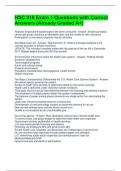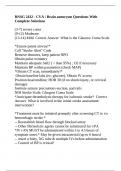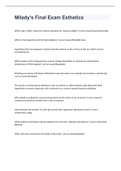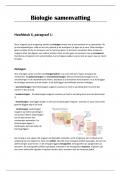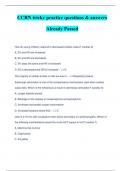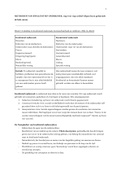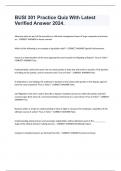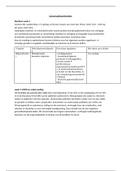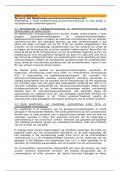Exam (elaborations)
HSC 310 Exam 1 Questions with Correct Answers (Already Graded A+)
- Course
- Institution
HSC 310 Exam 1 Questions with Correct Answers (Already Graded A+) Reasons employment-based system left some uninsured - Answer- Small businesses cannot get group insurance at affordable rates and are unable to offer insurance Participation in insurance programs may be voluntary Affordable Ca...
[Show more]
